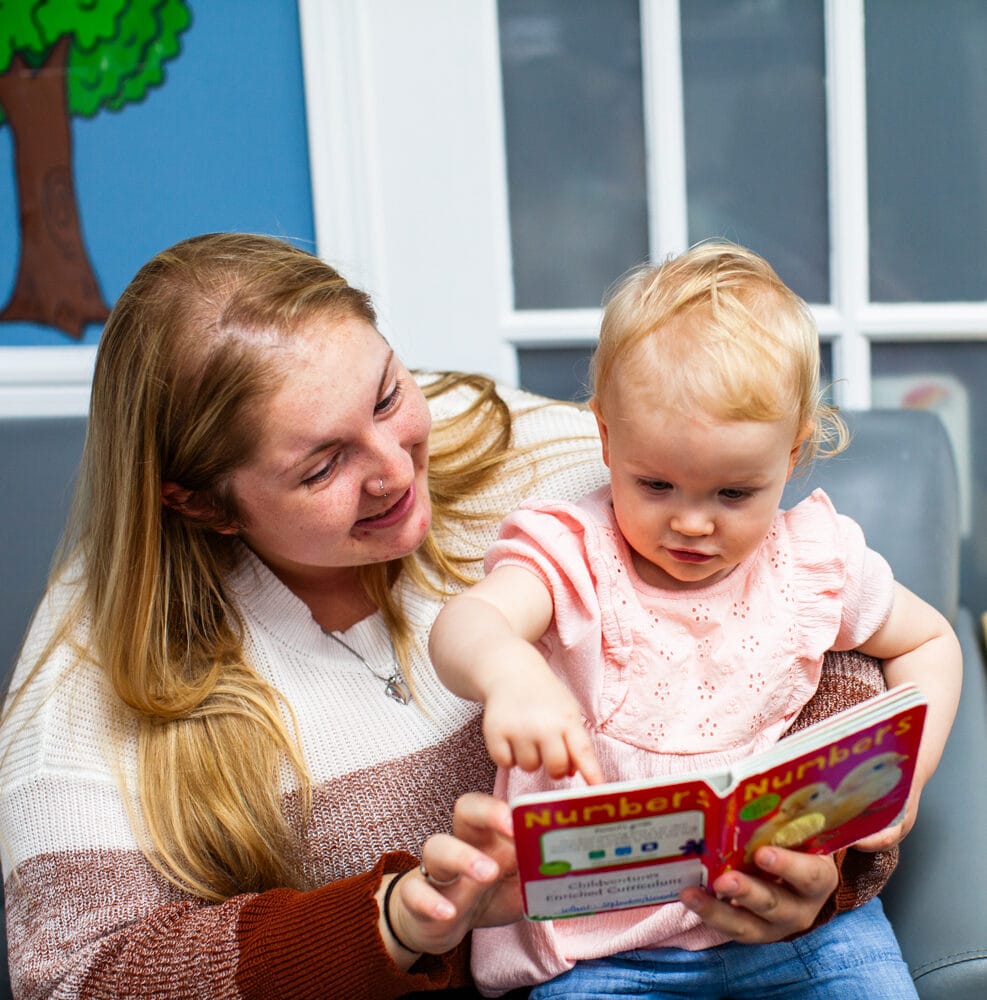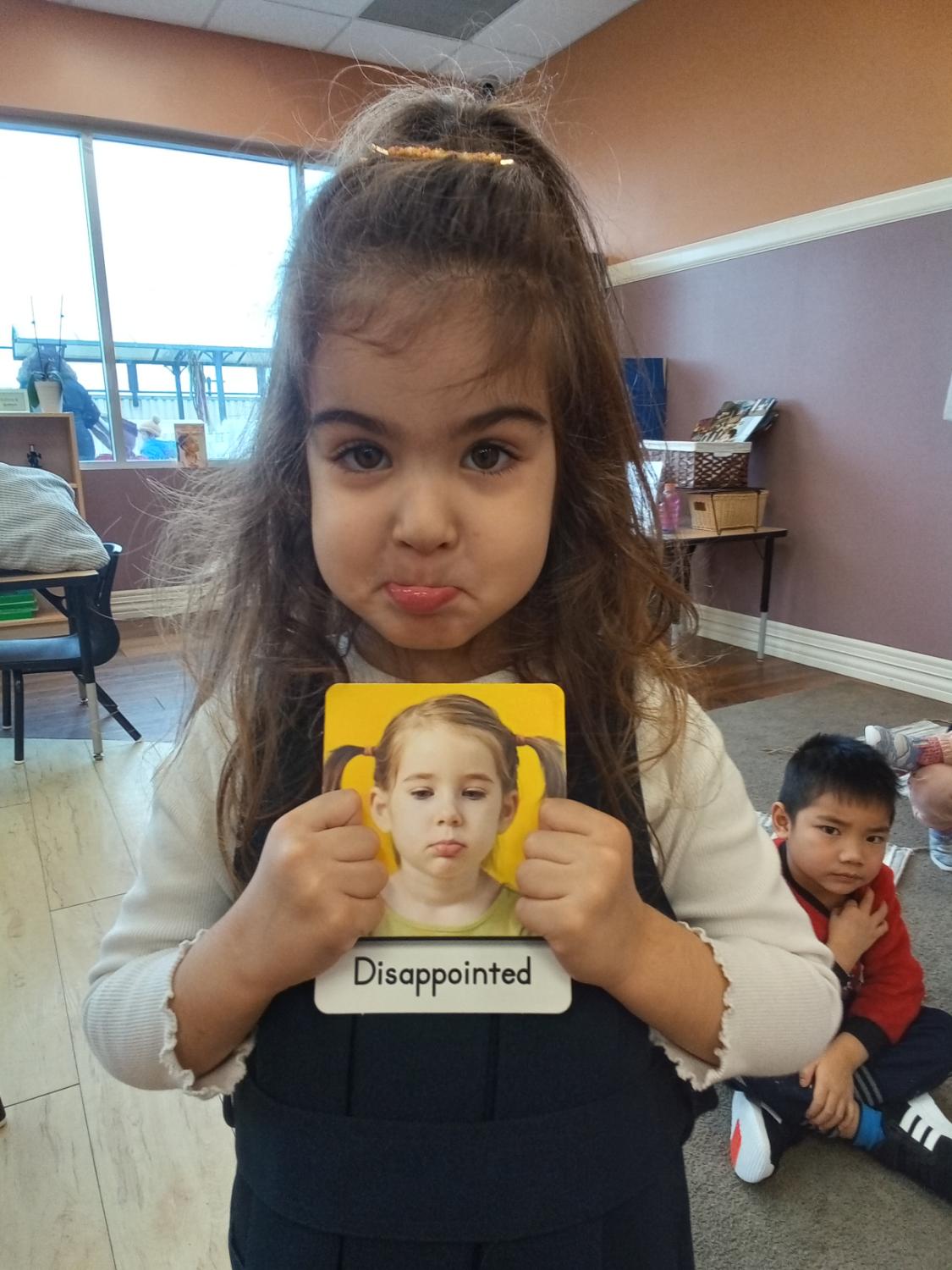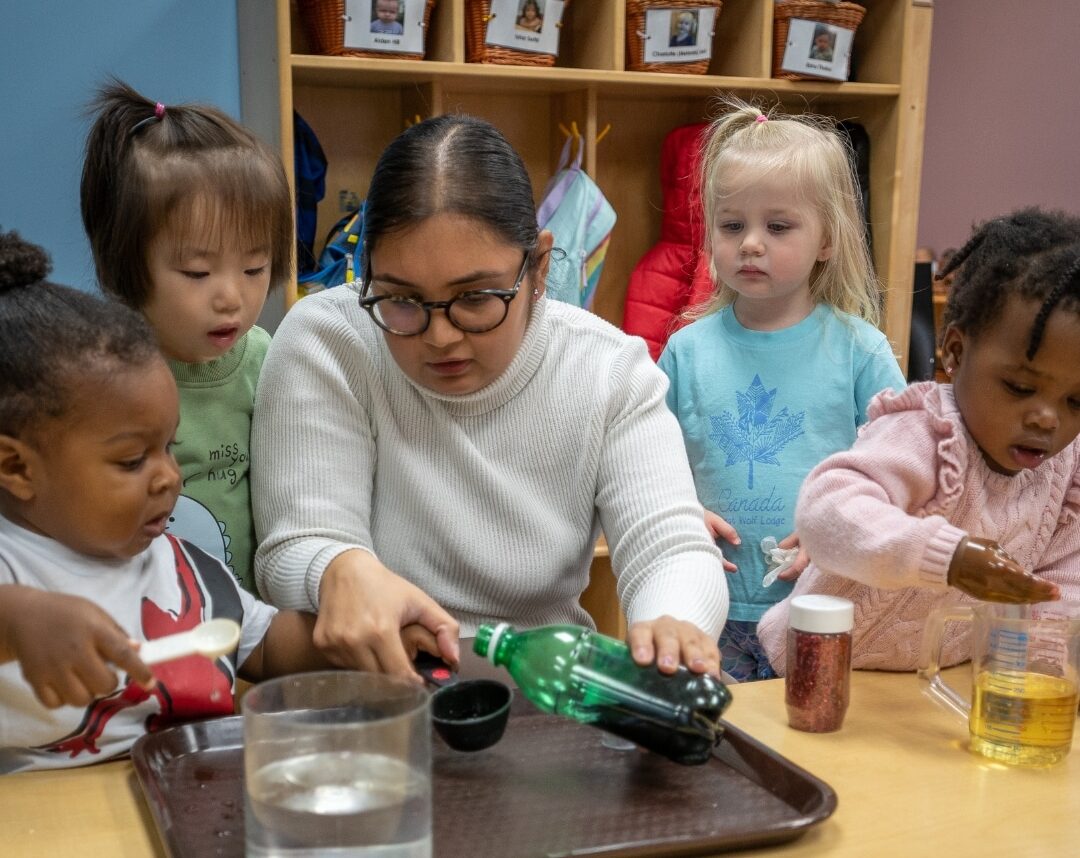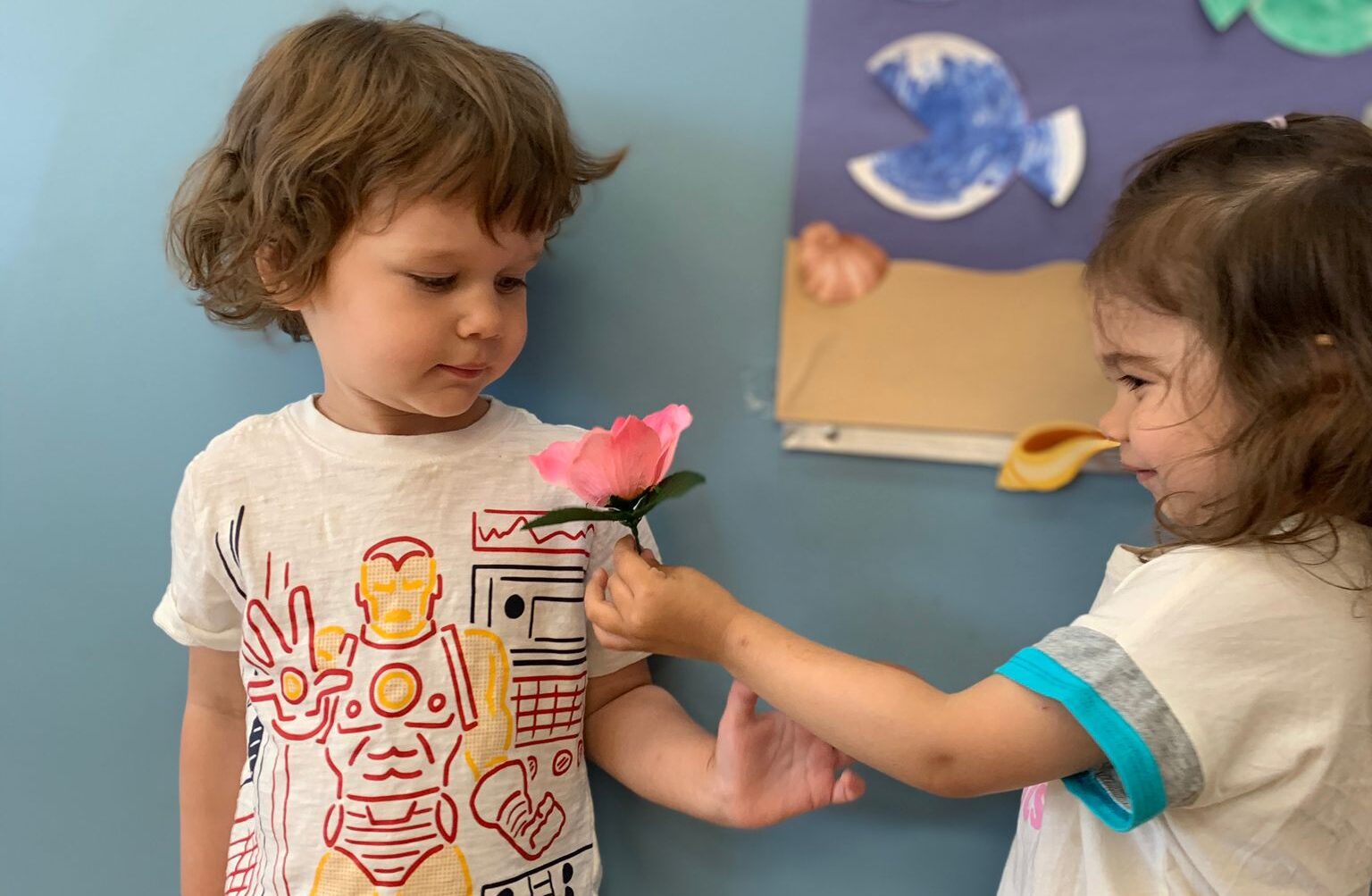

Baby Signs
Language development is a defining moment in a child’s academic journey. When babies can express their needs as young as 3 months old, it limits their frustration, builds confidence and lays the foundation for language development. The Baby Signs curriculum in our Infant program is founded in scientific research. Our educators take the 10 fundamental signs and layer on additional words each month to increase their breadth of understanding. By the end of the program, infants will be exposed to 15 essential signs.
Key benefits

Early communication

Limits frustration

Builds confidence

Second Step
As an evidence-based program, the goal of Second Step is to support Preschool and JK/SK children’s mental health and well-being as they cultivate positive friendships in the classroom. Second Step nurtures a child’s emotional intelligence as they learn to identify and label complex emotions within themselves while empathizing with others. By honing conflict resolution and communication skills, children learn to navigate relationships respectfully with educators there to guide and provide additional tools. This comprehensive approach cultivates positive attitudes towards school and fosters a safe, inclusive environment where children feel valued. Second Step sets the stage for lifelong emotional intelligence and empathic global citizens.
Key benefits

Build self-regulation

Nurtures relationships

Grade 1 readiness

STEM
Unlike other childcare centres, our STEM curriculum is adapted for children as young as infants and toddlers. The STEM approach provides the opportunity to focus on science and math foundations rather than a more traditional approach with a focus on just reading and writing. It introduces the brain to different experiences to provide children with more well-rounded development during the critical stage of cognitive development from 0-5 years. Children’s vocabulary is developed using the STEM terminology. For example, “sink and float” for a younger age group, where our older children begin to discover “gravity and absorption”. Through CV’s monthly STEM projects, children are given the opportunity to problem solve and develop their critical thinking skills.
Key benefits

Real world applications

Lays the foundation

Spark creativity

Virtues program
The Virtues Project is a global initiative that has been in existence for over 30 years. Virtues are our inner strength and represent the content of our character like respect or integrity. At CV, we nurture 24 virtues with our Preschool and JK/SK children. Each month students are introduced to a virtue that they then look to emulate and are recognized by their educators when the virtue is seen in action. Bringing awareness to and labeling these actions keeps them alive and celebrated within the classroom. Parents often comment that a highlight of their CV experience is their child coming home at the end of the day explaining the nature of integrity.
Key benefits

Culture of kindness

Moral excellence

Cultivate global citizens

Jolly Phonics
Jolly Phonics is an engaging and child-centered approach to teaching literacy skills. It employs a systematic, multi-sensory method that introduces young learners to phonics—the relationship between sounds and letters—in a fun and interactive way. Using songs, actions, and stories, Jolly Phonics guides children through learning the 42 main sounds of English and their corresponding letter symbols. It goes beyond rote memorization, encouraging children to explore letters and their sounds through movement and play, fostering a deep understanding of language. By making learning enjoyable and accessible, Jolly Phonics ignites a lifelong love for reading and writing, laying a strong foundation for literacy success.
Key benefits

Structured approach

Multi-sensory learning
